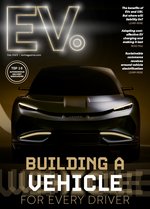Polestar integrates Luminar technology for autonomous EVs

The pure-play electric vehicle (EV) manufacturer, Polestar is making waves in electrification.
First bringing its Swedish parent OEM Volvo into the electrified vehicle market, then supporting the marine industry through a partnership with Candela e-boats, and is now committing to autonomous driving as it collaborates with the artificial intelligence (AI) technology provider, Luminar.
This comes at no surprise, as Volvo—the owner of Polestar—announced in late-November 2022 its latest electrified SUV leveraging AI and liDAR technology to maintain its status as the champion of road safety.
Aside from its Skylum software, which allows instant photo-editing, Luminar Technologies is also pioneering autonomous driving solutions to make Volvo and Polestar EVs more intuitive.
“Luminar is at the forefront of long-range LiDAR technology, and this closer collaboration will allow for greater innovation in our cars to come,” says Thomas Ingenlath, CEO of Polestar.
“We look forward to combining our R&D and product design expertise to deliver truly stunning LiDAR integration and capabilities for the Polestar brand.”
The Polestar 3 packs in autonomous driving technology
The most recently released Polestar 3—the company’s first SUV product—will be the first to receive the technology, which will be shared with the Volvo EX90. Further applications will be made in the Polestar 5 and expected to roll off the production line in 2024, bringing an autonomous electric GT vehicle to Polestar’s commercially-available lineup.
However, the Polestar 3 is already available to order and will come with the option of LiDAR technology at an increased cost of US$6,500 for the package. Using advanced laser technology, the LiDAR allows the car to identify objects near the vehicle in all weather conditions.
To operate the LiDAR system, the car must be fitted with additional cameras, including two eight-megapixel rear view lenses and a front-facing camera to increase the range at which the car can see. All of this incorporated into the vehicle and driven by the NVIDIA DRIVE core computer, the system alone is able to fulfil 254 trillion functions every second.
Luminar Technologies’ vision for electric vehicle safety
For Luminar technologies it’s more than just an electrification challenge. Leveraging artificial intelligence is all about bringing cars into the future and moving forward from manual safety protocols to utilising digital ones.
Luminar Technologies offers more ways for families and other drivers on the road to feel safe and in control, thanks to its Proactive Safety and Highway Autonomy solutions.
In September 2022, Luminar Technologies' commercial solutions equipped Mobileye Drive’s fleet of NIO ES8 test vehicles in Detroit, Michigan, representing the possibilities to come from autonomy, enabling driverless vehicles, safely. The commercial version of its safety technology incorporates both lidar and radar systems, which allow a 360-degree vision around the vehicle.
Moving forward with autonomy, the solution embedded into the test fleet of ES8 vehicles marks the beginning of the robotaxi era, which is set to make incredible progress in the next few years.
“Our Detroit testing of Mobileye Drive is helping us ensure that the system can bring forward the global commercialisation of autonomous driving technology and deliver on its promise to vastly improve road safety,” said its Senior Vice President of Autonomous Vehicles, Johan Jungwirth.
“We take the challenge of proving the capabilities of our technology seriously. By testing in the birthplace of the American automotive industry, we expect to make major progress toward our goals.”
- Voltpost Secures Grants for Nationwide Lamppost EV ChargersCharging & Infrastructure
- San Francisco Expands Curbside EV Charging ProgrammeCharging & Infrastructure
- How Amazon hit one Billion Electric Deliveries in the USFleet & Commercial
- Antimony Crisis: Challenges & Opportunities for EVsTechnology





